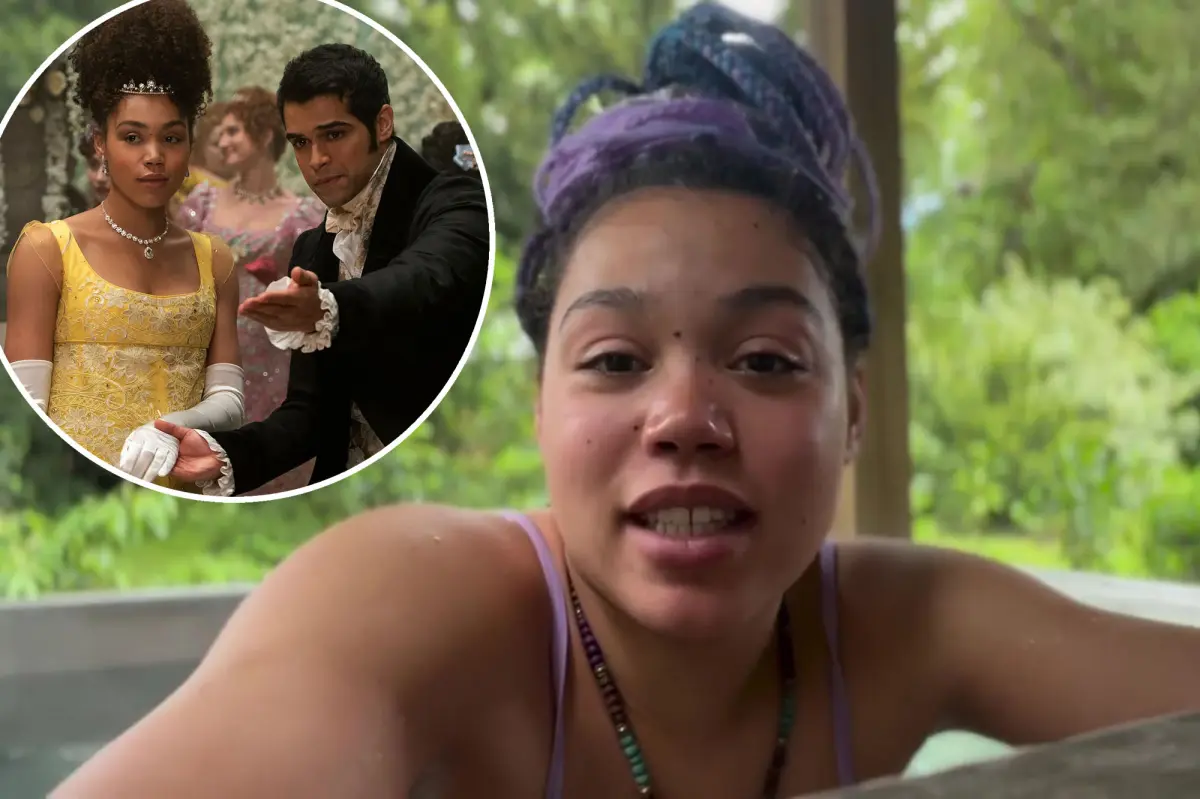Ruby Barker, known for her role as Marina Thompson in the hit Netflix series “Bridgerton,” has come forward with a heartfelt and poignant revelation about her battle with mental health issues, accompanied by criticism of the streaming giant for alleged lack of support.
The 26-year-old actress has been an advocate for mental health awareness and has shared her own experiences with mental health challenges in the past. In a recent interview on the LOAF Podcast, Ruby opened up about enduring not one but two psychotic breaks – one shortly after wrapping up the first season of “Bridgerton” in 2019 and another in 2022.
What makes her story all the more poignant is her claim that despite her struggles, Netflix failed to provide any support or aftercare during her journey to fame. Ruby expressed deep disappointment in the fact that, even as she was hospitalized just a week after wrapping up filming, there was no acknowledgment or outreach from Netflix or Shondaland, the production company behind “Bridgerton.”
During the interview, Ruby described the challenging and distressing environment she faced while filming the series, as her character, Marina Thompson, grappled with isolation and overwhelming circumstances. She explained, “During filming I was deteriorating. It was a really tormenting place for me to be because my character was very alienated, very ostracized, on her own under these horrible circumstances.”
Perhaps the most concerning aspect of her revelation is her statement that no one from Netflix or Shondaland has contacted her since her two psychotic breaks. Despite her struggles, she claimed that there had been no inquiry about her well-being, no offer of aftercare, and no support from either entity.
Ruby Barker’s story highlights the need for improved mental health support in the entertainment industry, particularly for individuals who face challenging and emotionally demanding roles. It underscores the importance of providing resources and assistance for those working behind the scenes, as well as in front of the camera.
Her courage in speaking out serves as a reminder that the industry must prioritize the well-being of its talent and ensure that mental health support and aftercare are readily available. Ruby’s experience is a call to action, urging the industry to acknowledge the emotional toll that demanding roles can take and to provide the necessary support to help those who face such challenges on their journey to creating memorable and impactful content.




